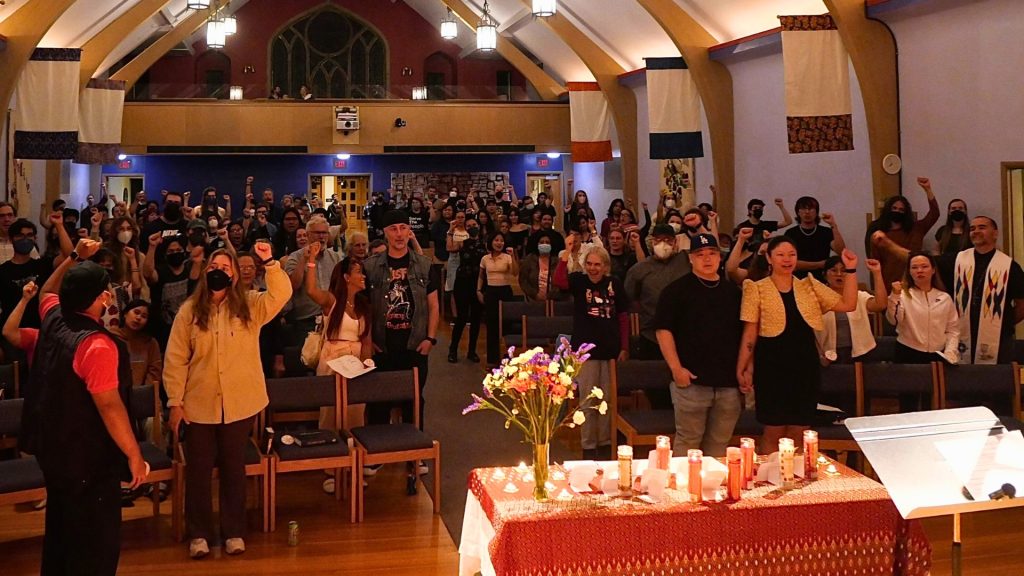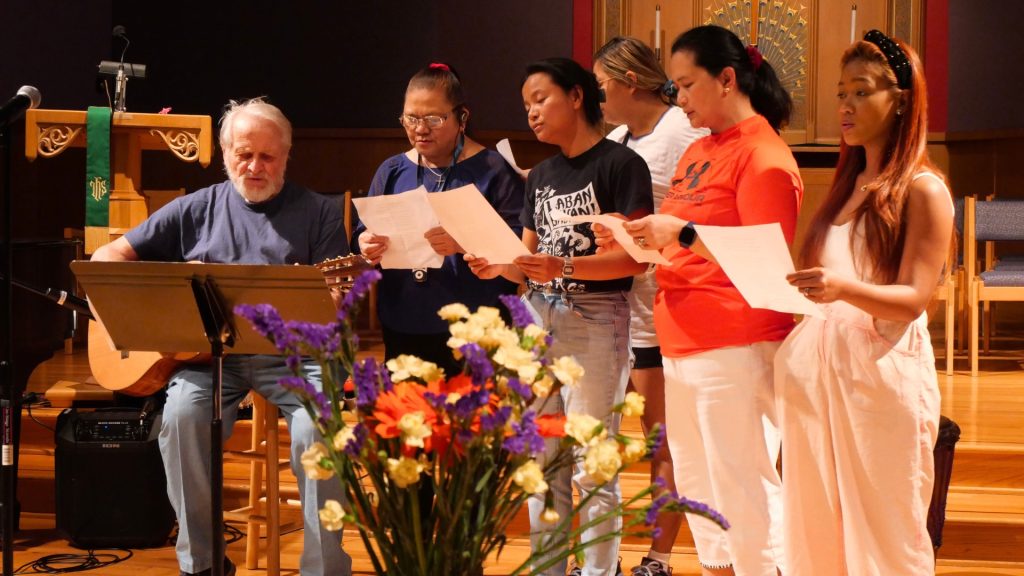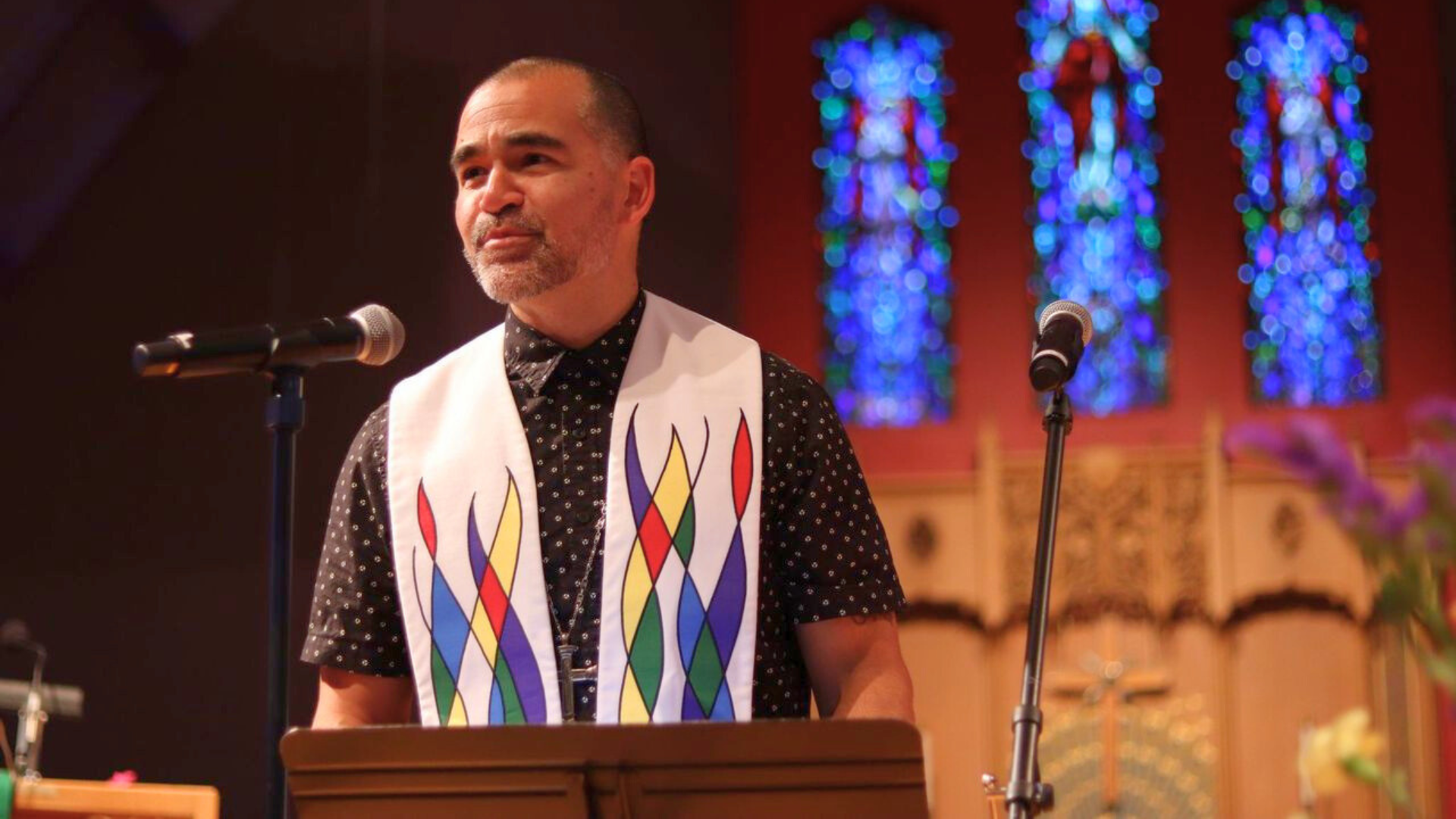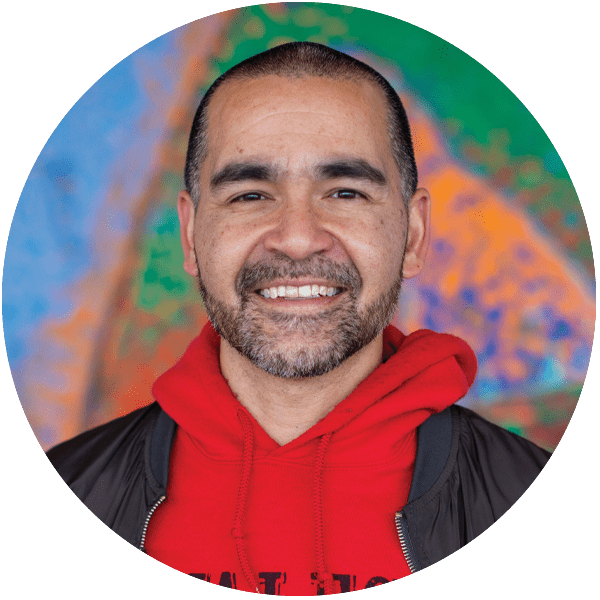There are 4.1 million Filipinos in the United States. We are unusual among US Asian groups because slightly over half of us (52 percent) were born here. About a third of us (including myself) identify as multiracial. The great state of Oregon boasts merely 46,000 Filipino residents, mostly clustered around the notably Caucasian metropolis of Portland, where my family and I have made our home for nearly two decades. Although increasingly diverse, the city of Portland remains about 66% white. Rooms that are not majority Anglo are the exception rather than the rule here.
Perhaps for this reason there is some excitement when one of my fellow Filipino Americans finds out there is a Filipino pastor in town (there are in fact, several). “You gotta be kidding me! A Filipino pastor in Portland? I’ve got to meet him!” (That is a quote from a Filipino brother whom I met through some mutual friends.)
Perhaps for this reason local Filipino human rights activists have occasionally reached out to me, in spite of the fact that, while I am very proud of my immigrant mother and all that I receive through her, I have never been to the Philippines and am not in touch with any family there.
My most recent experience with two of these groups was especially meaningful. Malaya Movement (Tagalog for “freedom” or “independent”) and BAYAN, an acronym for Bagong Alyansang Makabayan (The New Patriotic Alliance) which is also the Tagalog word for “nation,” organized a vigil to observe the anniversary of martial law that lasted in the Philippines from 1972 to 1986, and to warn against the voices that speak in favor of martial law today.

The Philippines, like the US today, is experiencing deep political division. While I did not grow up with my Filipino family, the nonviolent overthrow of US-backed dictator Ferdinand Marcos Sr. in 1986 was met with joy in my house. Martial law, which included more than 3,000 people being killed and more than 30,000 tortured, had finally ended. My growing years featured a large coffee table book, Bayan Ko (My Homeland)—a reference to a beloved patriotic song of the same name—filled with images and stories from the uprising.
And so it came as a surprise to me to learn that Ferdinand Marcos Jr. (the son of the dictator) was elected president in 2022. Less surprising are the reports of human rights activists indicating that since his election there have been 105 extrajudicial killings, 393 people abducted, and thousands upon thousands of reports of violence, harassment, intimidation, and arson. With Marcos Jr. in power, there is a movement to return to what some Filipinos see as the good old days of martial law. The young activists in Malaya Movement and BAYAN are deeply concerned about this potential—and they asked me to pray with them.
I came as a learner, owning my ignorance of the contemporary situation and the distance I feel at times from my Filipino roots. However, as I listened to their stories, I could hear an affinity with the psalmists and prophets who cried out to God for justice for their suffering people, and I composed a prayer that I hoped would be accessible to the spiritual diversity of the gathering, while authentically witnessing to the person of Jesus.
On the day of the event, 140-plus people filled the sanctuary of a historic church building in a gentrified neighborhood of southeast Portland. They were mostly under 40. They were mostly Filipino. Among them were militant leftists, gender non-conforming, and queer-identified people—not folks I am accustomed to seeing fill a church building. I was moved by the testimonies of those who had survived martial law, reports from those who had recently visited the country, and brilliant poetry and music shared by young Filipino artists. Powerful acapella chants in Tagalog sent chills down my spine even though I do not speak the language.
As a pastor who loves the church, I was also intrigued by the central role Christian ministers played in the gathering. I led the opening prayer, another Filipino American pastor closed the vigil with prayer, and right in the center we heard an extended testimony from an Italian Catholic priest (affectionately called Father Gigi by the organizers), who had ministered in the Philippines during the time of martial law.
Father Gigi’s story was not politically driven: his compassion for his Filipino neighbors was rooted firmly in the person of Jesus, his response to their suffering an outgrowth of his calling to serve God’s people. His faith and compassion set him on a collision course with the authorities, and he was eventually deported to his home in Italy.

Again, as a pastor, I was intrigued with the warm reception and the enthusiastic appreciation these young activists showed us—how the name of Jesus and the words of Scripture were welcomed among the diversity of young second-generation immigrants, some in militant black and others sporting keffiyeh in solidarity with the Palestinian people. Like many immigrant communities, Filipinos often experience their young people leaving the church as they become adult Americans. Many of those present had been raised in a Christian tradition—largely Catholic, but also Baptists, Presbyterians, and Assemblies of God were represented in the backgrounds—and are no longer involved in a church community.
When I debriefed the gathering with the organizer who had invited me (herself an ex-Catholic), I asked her about why these de-churched “nones and dones” collaborated so readily with Christian pastors. She spoke appreciatively of her own experience being raised in the church, saying, “Church is what taught me to look out for others. It was my faith that taught me to think of myself not just as one person in the world but as a person whose actions impact others.”
Then she invited me to consider the following: “The church has always had a very significant role in Filipino movements. I think it’s because we can see a lot of points of unity in Christian practice and what we are organizing for in the Philippines, which is a just and lasting peace. The goal of Christianity is to extend love and care for neighbors, which I think is not different at all from community organizing.”
These second-generation immigrant, millennial, and Gen Z organizers and activists are not hostile to the faith or even to the church. On the contrary, they see their work as aligned with the work of Jesus. What they long for is a witness that Christ is indeed found among “the least of these,” that the gospel really is “good news for the poor,” and that Jesus truly is “God with us.” I pray that God will raise up a church with such a witness.














